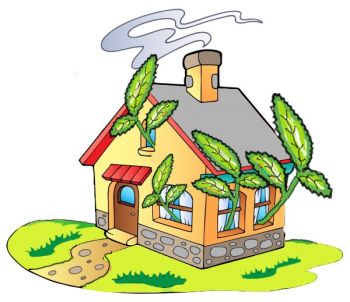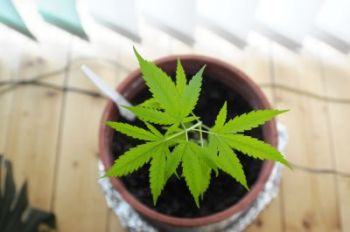Search All Denver Homes
 We Give You The Easiest Ways To Search Denver Homes And Find The Perfect Home!
We Give You The Easiest Ways To Search Denver Homes And Find The Perfect Home!

Along with Colorado's recent legislation legalizing pot use and sales, comes many issues about how to properly manage the impact of legal and illegal grow houses. Possibly the biggest concern in real estate sales has to to with mitigating the consequences of what cannabis-growing sellers leave behind.
Colorado's Amendment 64 permits anyone 21 years or older to possess up to one ounce of marijuana. The law also allows for in-home cultivation of up to 6 cannabis plants, and includes the retail sale of marijuana (subject to certain limitations). Local governments retain the authority to regulate, which means that some municipalities have enacted their own restrictions like prohibiting growing or consumption within a certain distances of schools. A majority of Colorado Counties have even banned marijuana retailers for now, as they may wait to see how the law plays-out in various other parts of the state.
Here's a map showing each of the Colorado counties, stance on cannabis sales, and another map of all the US States' marijuana laws.
Because Amendment 64 allows for in-home cultivation of up to 6 cannabis plants, some homeowners are now taking advantage of their new rights and freedom. What you may not know is that growing marijuana plants inside a home can affect the physical and financial health and safety of the property though, and may even cause greater damage if improperly maintained. It is now widely documented that growing marijuana plants to any extent inside a home can cause varying degrees of mold spores and airborne contaminants, due to the irrigation, lighting, and moisture needed for the plants. Larger (and illegal) in-house growers can create even greater hazards due to the more extensive ventilation, plumbing, and high-voltage electrical associated with their operations. Some growers have been known to modify structures, duct-work, electrical systems, install extensive watering & plumbing systems to maintain their crops, and bypass electric and water meters altogether.
How does in-home cannabis cultivation affect home buyers in a real estate transaction? Cannabis plants emit oils and vapors, and these vapors are known to penetrate wall surfaces, insulation, drywall, floor coverings, and so on. Sometimes the vapors are also known to aggravate health conditions of future owners who are sensitive to these airborne materials, or who have illnesses triggered by exposure to the contaminants or chemicals. These are only some of the issues that unsuspecting home buyers can fall victim to. Below, is a short list of others.
Here's a short list of some of the potential damages that can occur under various conditions inside a grow house:
(courtesy - Colorado Inspection Services)
If a grow operation is suspected or disclosed by the seller, its prudent for a buyer to perform a thorough evaluation over the impact the plant grows have had on the property. 
Homeowners and real estate agents (who have knowledge of), have a duty to disclose whether a property has been exposed to a marijuana grow operation inside, or anywhere on the property. So it's crucial for homeowners and agents alike, to make full and proper disclosures when listing the house for sale. Regardless of your plant volume and size, full and proper disclosures will help mitigate any potential or future liability the homeowner and seller may accrue with regard to their marijuana grow operation.
Despite this law that legalizes recreational marijuana use and limited in-home grow operations, these activities remain illegal on the federal level. This means that cannabis is officially illegal in properties built or insured by HUD. Grow activities, and even using pot indoors, can potentially result in violations of loan covenants relating to these activities, and can potentially spell trouble with insurance carriers. Technically, your mortgage lien-holder can “call the note due”, if they discover a grow operation on the premises.
Insurance companies may decide to not pay damage claims where there's evidence that any damage sustained on the property was due to illegal activities. In the event of a fire or casualty loss, this could be financially devastating. As cannabis becomes more widely accepted in the coming years, insurance companies may eventually begin to offer special riders or coverage for these types of activities, but for now its clear that in-home grown pot operations can be an extremely risky venture. We all know how insurance companies like to avoid paying claims, so blazing this trail may cause home growers to assume some very large financial risks.
Any homeowner considering a grow area inside their home must consider the impact that any-sized grow operation will have within their community or neighborhood. It is a fact that Homeowners Associations may legally restrict in-home grow activities within their jurisdiction!
Most rental leases prohibit illegal activities, so this would include pot use, consumption, and growing operations. Tenants can be evicted for any illegal activity not allowed under the terms of their lease. Not only can you be evicted, but the lease-buyout provision may be enforced. Even in instances where the tenant holds a medical marijuana card, tenants can remain subject to eviction, because medical users are not considered a protected-class under current fair housing laws.
With all of the potential financial and legal issues relating to Colorado's new cannabis law and how it can affect real estate sales, we're working hard to stay abreast and adapt. In time, more rules and laws will be enacted to help us to better navigate these complexities, and the consequences. In the meantime, buyers and sellers need the most current information that will help to protect them from making serious mistakes of judgment. As a Colorado real estate professional, I've enlisted a variety of resources to provide a wide variety of protections to my buying and selling clients. If in doubt about any provision or consequence about how any of this relates to Colorado real estate sales, feel free to contact me before doing something you might regret.
The purpose of this article is not intended to vilify pot-use or home cultivation, but to provide insight about some of the issues not widely known or considered.
Additional information and resources are available here and in the NAR Field Guide
If you're thinking of buying or selling a Denver-Area home soon and would like professional assistance with your transaction, just call me anytime at (303) 514-4000.
Michael Dagner is an expert in Denver-Area home sales.
Call today, (303) 514-4000, for help with your home sale or purchase.
RELATED ARTICLES
by Michael Dagner: Google+
The Michael Dagner Group, Brokers Guild Cherry Creek Ltd, 7995 E. Hampden Ave, Ste 100, Denver, CO 80231 Map
5 Minutes From The Denver Tech Center - Near Tamarac Square, 9-Mile Station, & Cherry Creek Reservoir
(303) 514-4000
Copyright © 2010-2011, the Michael Dagner Group. All rights reserved. Sitemap | Terms Of Use | Our Commitment To Your Privacy